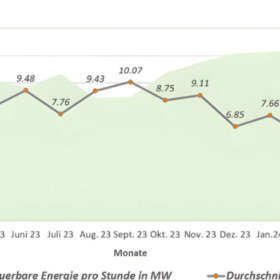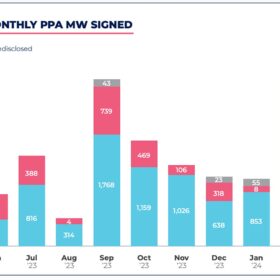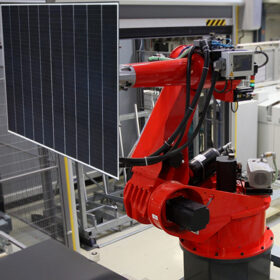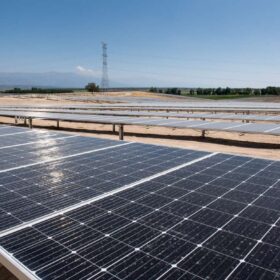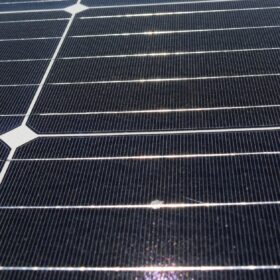German energy market records 78 hours of negative prices in May
Rabot Charge’s monthly analysis shows significantly more hours with negative prices on the Germany electricity market than in April. However, the average price in daily transactions was €6.72 ($7.32)/kWh – higher than in the previous month.
Japan reports radio interference from PV systems
Japan’s Ministry of Internal Affairs and Communications says that since 2021, it has received 44 reports of unwanted radio wave emissions from solar power systems, including interference with defense facilities and emergency wireless equipment. The ministry warns that PV systems may be removed by law if they continue to cause problems.
United Kingdom closes in on 16 GW installed solar capacity
The latest government installation figures reveal a slower start to the year for the United Kingdom, with small-scale installations accounting for the majority of additions. As the UK General Election approaches, there are calls from industry for the next government to act quickly on the issues hindering capacity expansion.
Pexapark says European developers signed 28 PPAs for 1.5 GW in April
Swiss consulting firm Pexapark says the total capacity of signed power purchase agreements (PPA) in Europe in April more than doubled the volume it recorded in March. Meanwhile, all tracked PPA prices rose 1.6% month on month.
Analysis shows large-scale PV still cheapest electricity tech in Australia
The Commonwealth Scientific and Industrial Research Organisation (CSIRO) GenCost report shows renewables remain the cheapest new-build electricity technology in Australia.
Recom subsidiary Sillia closes plant in France and moves to Italy
The subsidiary operated a module manufacturing facility in Lannion, Brittany, northern France. According to Recom, the annual production capacity of the Sillia plant had been expanded from 50 MW in 2017 to 500 MW. The Recom Group as a whole remains unaffected by this liquidation and is in the process of consolidating its European cell and module manufacturing in one central location in Padua, Italy.
Czechia introduces first rules for agrivoltaics
Under Czechia’s new rules for agrivoltaics, farmers and developers will not need approval to change land designations and zoning plans for agricultural areas devoted to PV generation. The provisions currently only allow agrivoltaics to be deployed in orchards and vineyards.
Netherlands approves grid fees for rooftop PV system owners
The competition regulator in the Netherlands says that the grid fees that big energy suppliers are applying to PV system owners are legitimate. Solar customers currently pay between €100 ($107) and €697, depending on the system size.
Solar panels for large-scale PV selling for €0.10/W in Spain
Spanish developer Solaria says it bought 435 MW of solar modules from an undisclosed supplier for €0.091 ($0.09)/W. Kiwa PI Berlin confirms that average solar module prices for large-scale PV projects in Spain are now around €0.10/W.
Malaysian government launches incentive scheme for residential solar
The Ministry of Energy Transition and Water Transformation in Malaysia is teaming up with private and public partners in the country to offer citizens financial incentives and discounts when adopting solar. It follows a government rebate scheme introduced in April.
